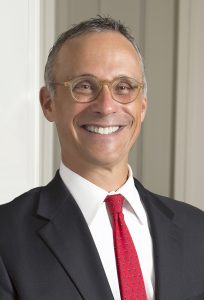Roth Writes About Teaching Iconic Film ‘Casablanca’ to Today’s College Students

On the 75th anniversary of Casablanca, President Michael Roth writes in The Chronicle of Higher Education about teaching the iconic film to modern college students. He writes, “…I have to encourage students to open themselves to the pace, the acting styles, and the conventions of classical Hollywood cinema. I push my smart, hip, and often progressive students to give up their condescending attitude toward the past.”
He writes:
This year, the immigrant story at the heart of Casablanca is more powerful than ever. Many of my students are sympathetic to refugees escaping brutal conditions, and in our current political atmosphere this is no small thing. But Casablanca’s themes go deeper than that, depicting a world in which people are willing to work together across differences for shared political goals. There can be no litmus test of political or moral purity when the threat is real and the task is to find common ground from which to take effective action.
On college campuses it is easy to stay locked in the bubble of one’s own friends and allies. A campus may, like Rick’s cafe, pride itself on diversity, but student groups (and faculty allies) often self-segregate, so they rarely put aside their differences to join forces, or increase mutual understanding through conversation and debate.
While administrators talk a lot about helping the world, colleges often seem content to prepare students to maximize personal gain after graduating, encouraging a retreat into a private life in which other people’s problems and political struggles don’t inspire concern — let alone commitment and action.
Despite the lofty rhetoric, colleges are reluctant to stick their necks out for anybody, except their own students, alumni, and faculty. Casablanca forces us consider what it takes for good people to act in a corrupt world, not just turn their noses up at the corruption. What does it take to say “no” to abuses of power? How does one come to risk one’s life by publicly affirming basic human values?”
These are questions that Casablanca raised when it was released 75 years ago. Today’s undergrads may resist its earnestness and romanticism, and they can easily point out deficiencies in its portrayal of race and gender. But Casablanca’s story of how diversity and solidarity can be combined to fight tyranny still resonates, even if that combination remains more aspiration than reality on campuses. I suppose that’s one reason I continue to teach the film: When neutrality is no longer an option, aspiration counts for a lot.

